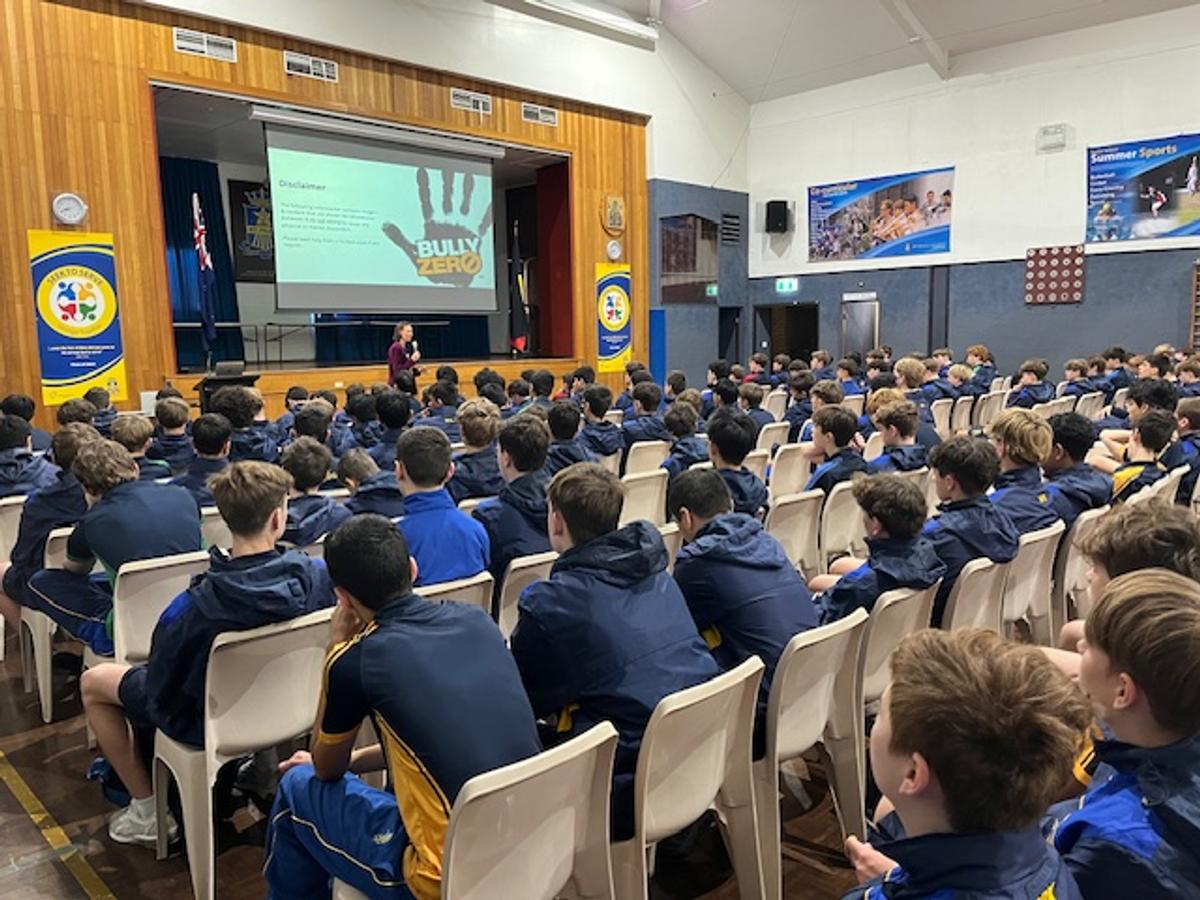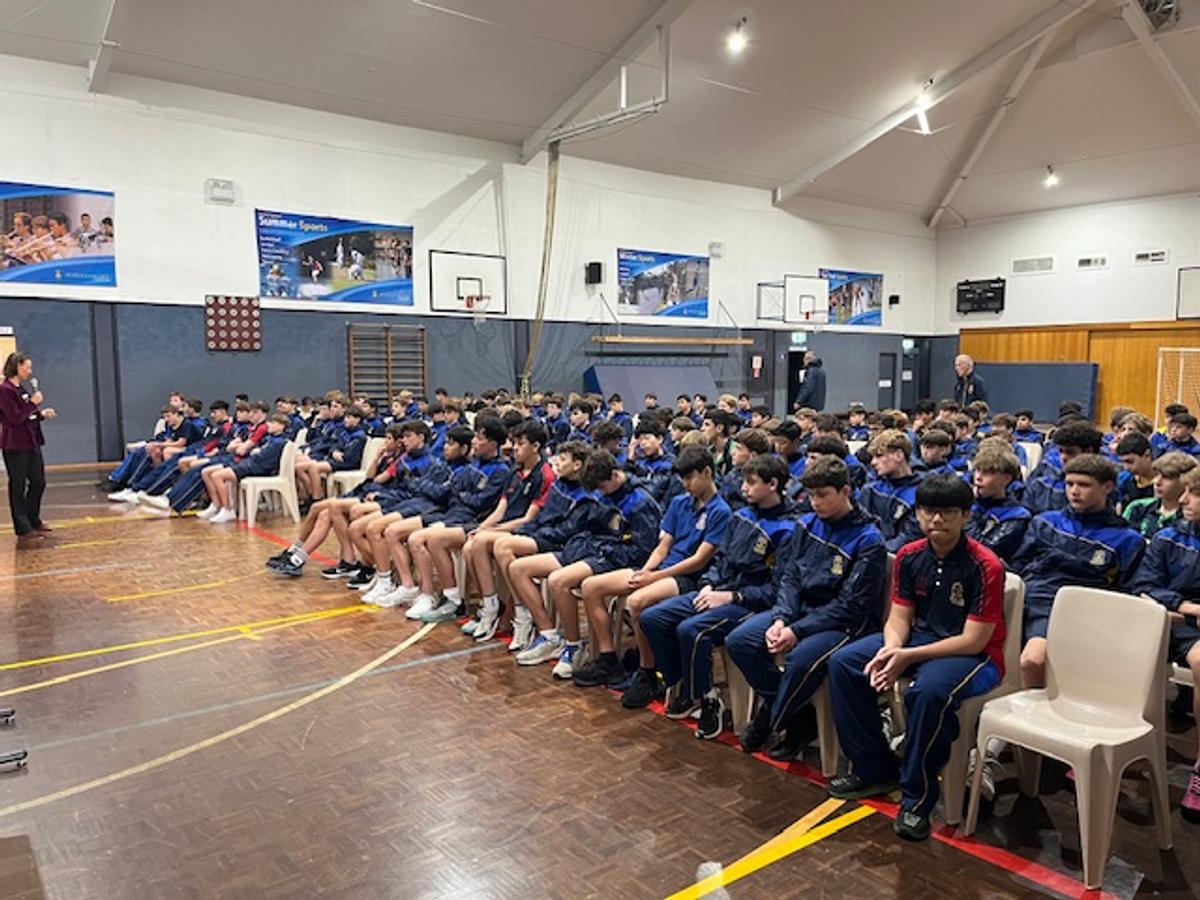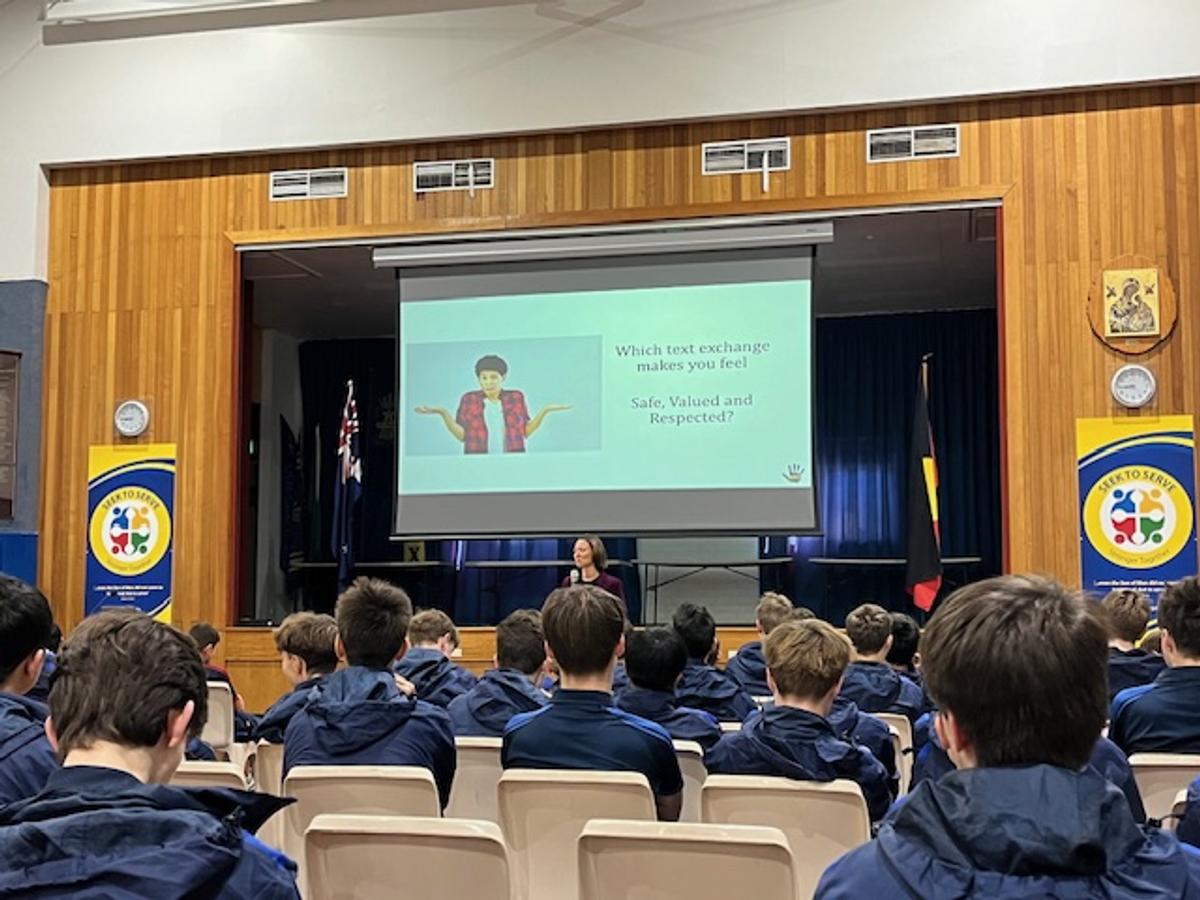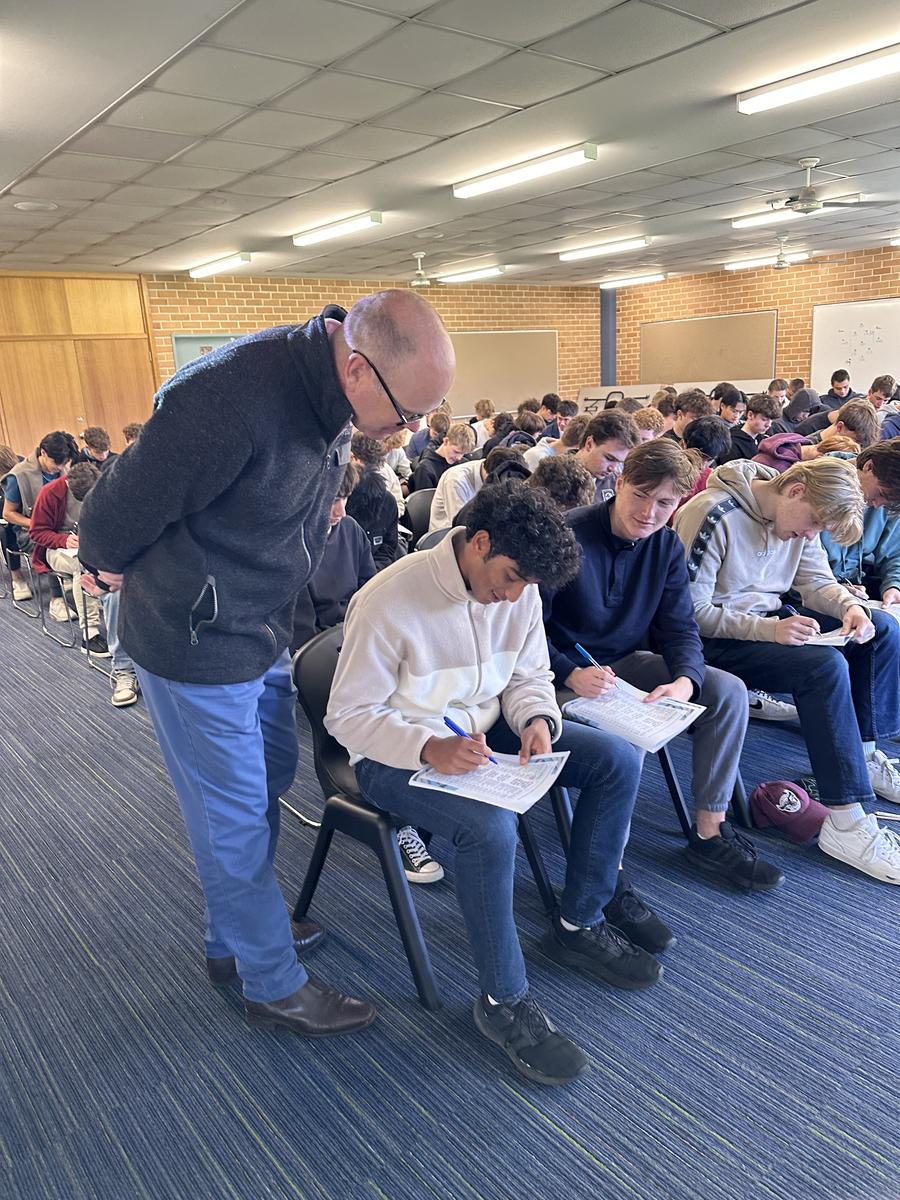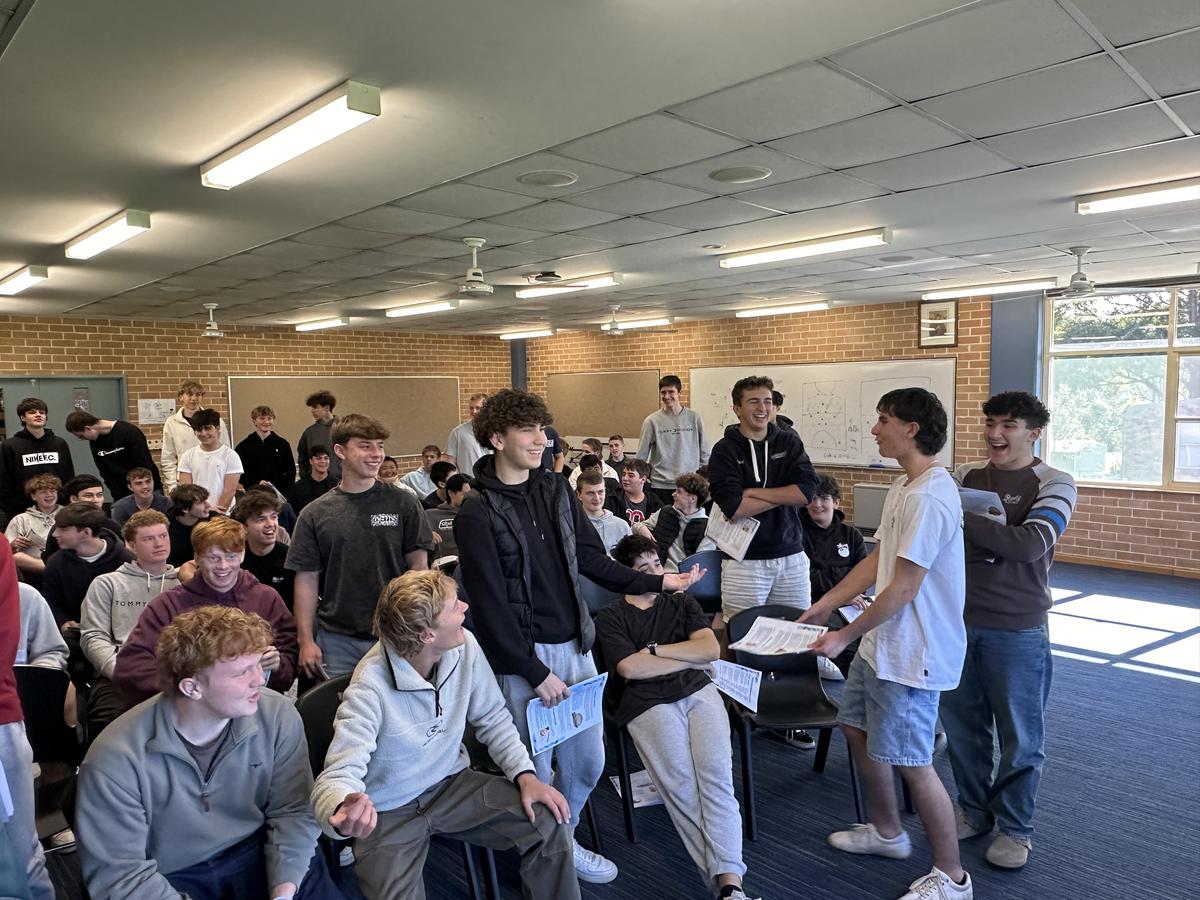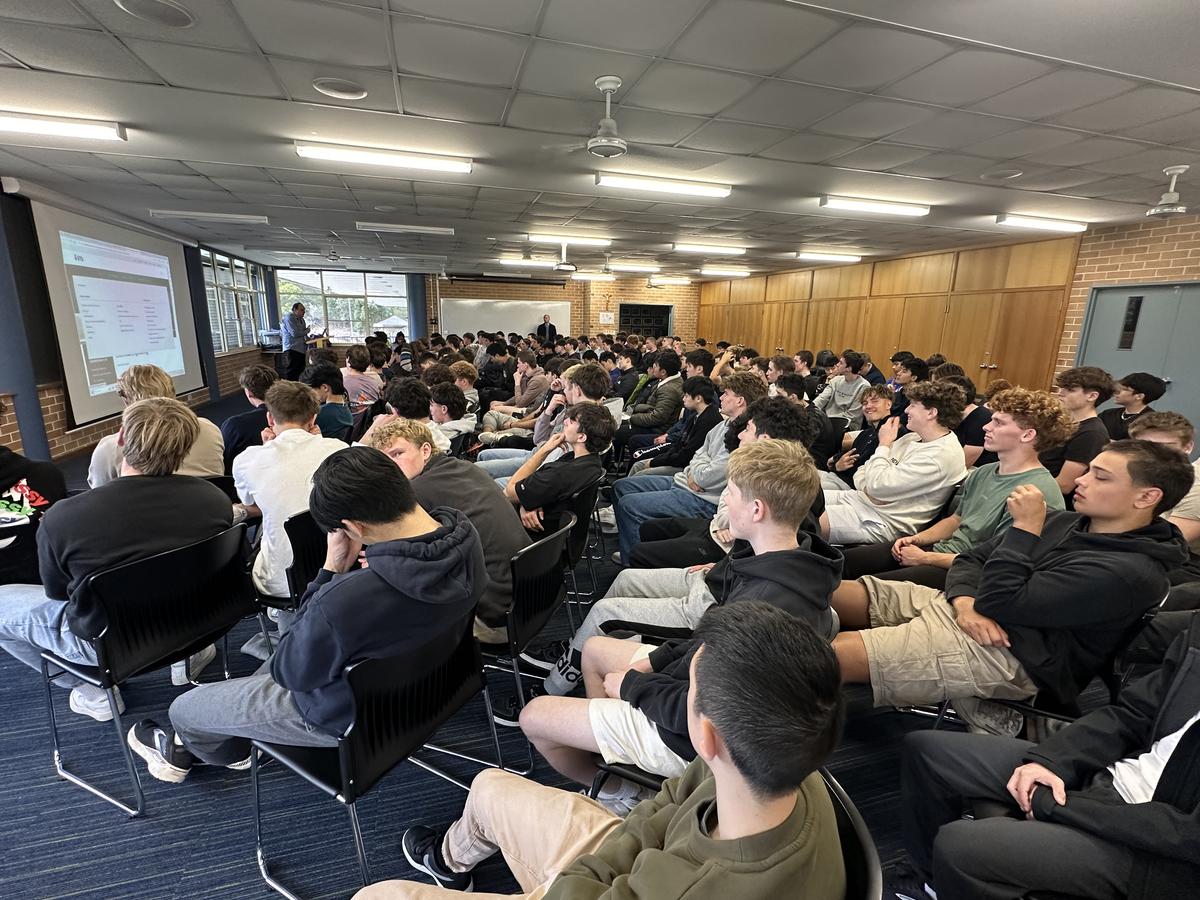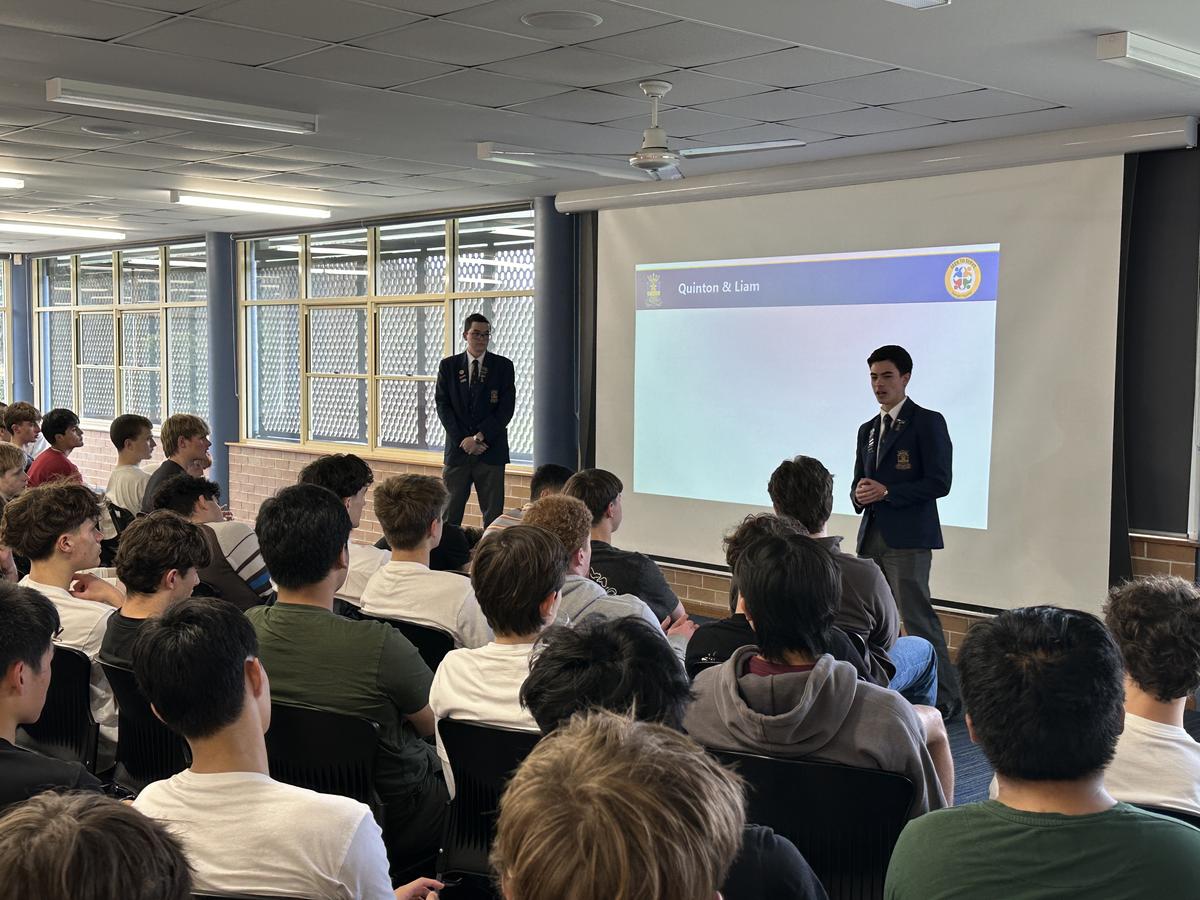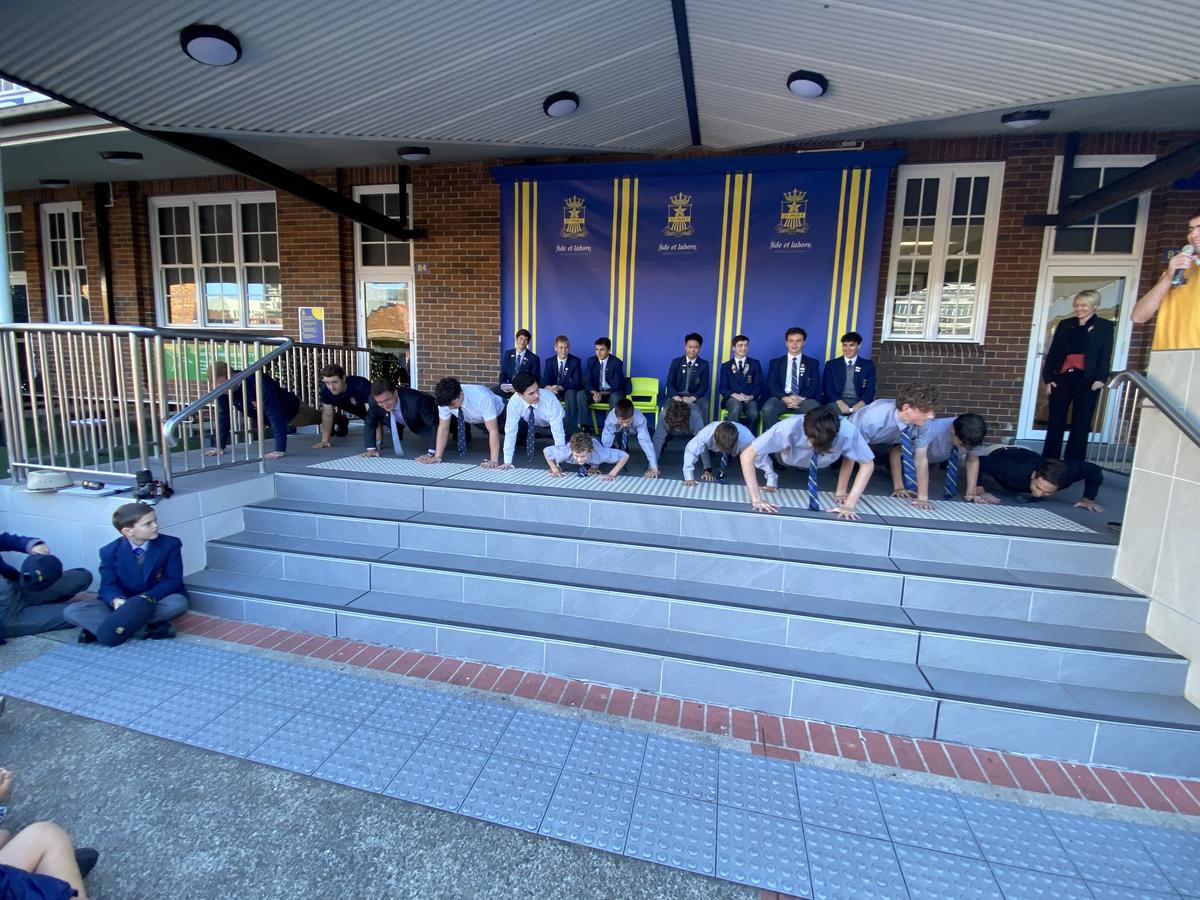Pastoral Care

- Year 9 anti-bullying presentation
- Year 11 Study Day
- Push Up Challenge
- Things to know about child and adolescent mental health
Year 9 anti-bullying presentation
On Wednesday, Year 9 had a company called Bullying Zero address the group on understanding bullying. Pius students were provided with evidence-based information on bullying, the different types of bullying and its impact on young people. Participants were also taught a variety of strategies to help them assess and respond to bullying situations, whilst also identifying and understanding the role of bystanders.
Year 11 Study Day
This week we welcomed back Dr Prue Salter from Enhanced Learning Educational Services (www.enhanced-learning.net) as our guest speaker for an insightful session with Year 11 students.
The event provided a unique opportunity for Year 11 to reflect on the academic progress students have made and skills they have developed, in order to explore new strategies for maximising academic potential as they approach the culmination of their high school years.
Dr Salter's expertise offered valuable insights into how to study effectively at home and deal with distractions, manage time efficiently, plan for assessments, make brain-friendly study notes regularly, and use a wide variety of active study techniques to suit individual learning preferences.
We would like to express our gratitude to Dr Prue Salter for sharing her expertise once again, and we encourage our entire school community to leverage the valuable insights available to our school on the study skills website: www.studyskillshandbook.com.au. Just enter the username: spx, and use the password: 25success. There are lots of useful handouts available on the Things to Print page when you log in. For additional study skills tips from Dr Salter, families can explore a dedicated resource at http://studyskillstoptipsparents.com/.
We also encourage parents to explore the session's slides and handouts with students, fostering further discussions about areas that may benefit from positive changes. Let's continue to support our students to achieve their full academic potential and work towards the next chapter of their lives.
A reflection of the day from Lachlan Staber
Year 11 had an enlightening Study Day at Oxford Falls where they learned skills to guide them through their learning. Dr Prue Salter spoke to students in the first segment about ways to improve their study habits at school and at home. Interactive activities helped us recognise and understand how they can enhance our habits and techniques for better studying, especially as our exams are approaching.
After a short break, we received information from Mr Madani about early entry for university and the resources available through the careers page. We also learned about the importance of Year 11 studies and reports for our future.
College Captain Quinton Crispe and Vice-Captain Liam Boswell spoke to us about leadership in the final segment, sharing personal experiences and insights on being a leader. They emphasised the values of humility and being able to work under pressure. Quinton and Liam answered questions from the students before wrapping up the day.
The study day at Oxford Falls was highly beneficial, offering valuable insights and practical advice on improving study habits, understanding university entry options, and developing leadership skills. The combination of expert guidance and interactive sessions left the students well-prepared and motivated for our future exams and goals.
Push-up Challenge
Members of our student leadership team introduced this year's push-up challenge this week at Assembly. The push-up challenge is an important initiative which focuses on mental health and suicide prevention in Australia. The challenge will be held from 5 - 28 June and is broken into 135 push-ups per day. Students are challenged to complete 3,249 push-ups during the 24 days, which represents the number of lives lost to suicide in Australia in 2022.
From now until 5 June, students can work on their push-up technique and stamina so they are ready to start in Week 6.
Our student leaders reminded students to train within their limits and ask for support if they need it.
More information will be provided closer to the start date.
Things to know about child and adolescent mental health
Being mentally healthy during childhood and adolescence means reaching developmental and emotional milestones and learning healthy social skills and how to cope when there are problems. Mentally healthy young people have a positive quality of life and can function well at home, in school, and in their communities. This ability to function ensures their overall wellbeing and resilience. Here are six key points about child and adolescent mental health:
Developmental Milestones: Good mental health in children and teens goes hand-in-hand with hitting those expected benchmarks in how they think, feel, and interact with the world around them. This includes things like learning to express themselves clearly, dealing with emotions in a positive way, and building strong friendships.
Emotional Wellbeing: Strong mental health in children and teens is like a foundation for their overall wellbeing. It empowers them to navigate the world through healthy thinking, emotional regulation, and positive social interactions. This includes learning to communicate effectively, manage emotions constructively, and build strong, supportive relationships.
Risk Factors: Stress, trauma, adverse childhood experiences, and toxic environments make it difficult for a child to thrive.
Coping Skills: Equipping children and teens with healthy coping mechanisms is an essential investment in their future wellbeing. These skills empower them to navigate life's inevitable challenges, bounce back from disappointment, and manage stress in a constructive way.
Supportive Relationships: Strong, positive relationships with family, friends, and teachers are the building blocks for life-long emotional wellbeing. These supportive connections nurture resilience, helping young people navigate challenges and bounce back from setbacks.
Is it normal or should I be concerned? It's essential to distinguish between typical developmental phases and potential mental health problems. While some moodiness or defiance is normal during adolescence, persistent or extreme behaviours may indicate a deeper issue. Finding meaningful and effective ways of investing in child and teen mental health is like planting seeds for a strong and resilient future. Early intervention allows us to identify and address any emerging challenges promptly, preventing them from evolving into more serious problems for the individual as well as the wider community. The state of child and adolescent mental health in a school community can also directly impact wellbeing, morale and functional effectiveness of not only staff, but also other students. As the proportion of young people with concerns about behavioural or mental health balloon, fostering meaningful and engaging learning experiences becomes an uphill battle for both teachers and students.
Year 7 study skills evening - save the date
Save the date for the Year 7 study skills evening which is being held next month. Please see the attached flyer for more information.
This is an important evening for our Year 7 students as they commence their high school years and we are looking forward to seeing our Year 7 students, along with a parent, attending. A letter has been sent out to Year 7 parents this week, and parents are asked to rsvp via the link in the letter.
Year 8 families who missed out last year, or who would like a refresher on this informative evening, are welcome to attend. These Year 8 families can rsvp via the following link:
Mr Martin Gillogly - Assistant Principal, Pastoral Care

